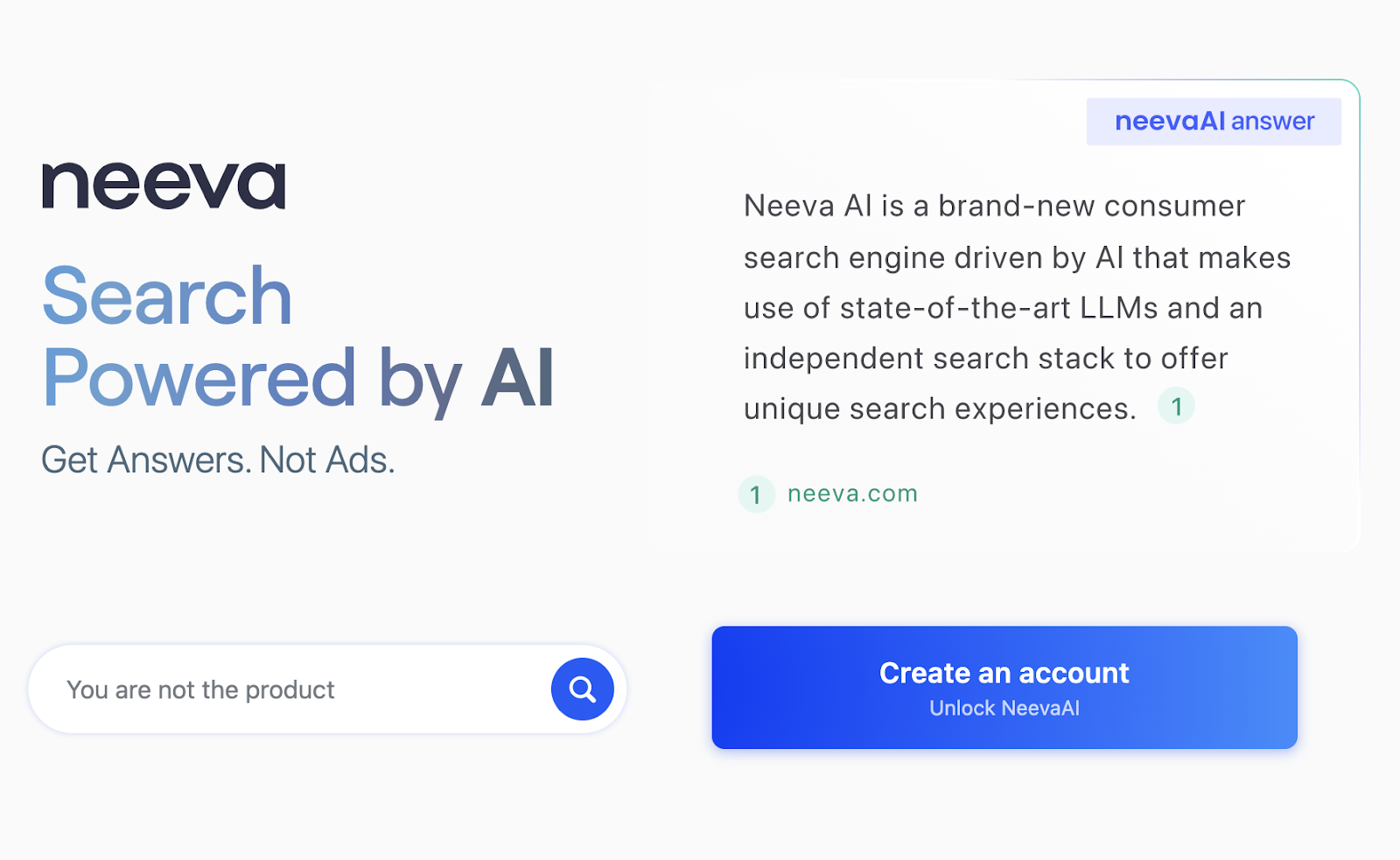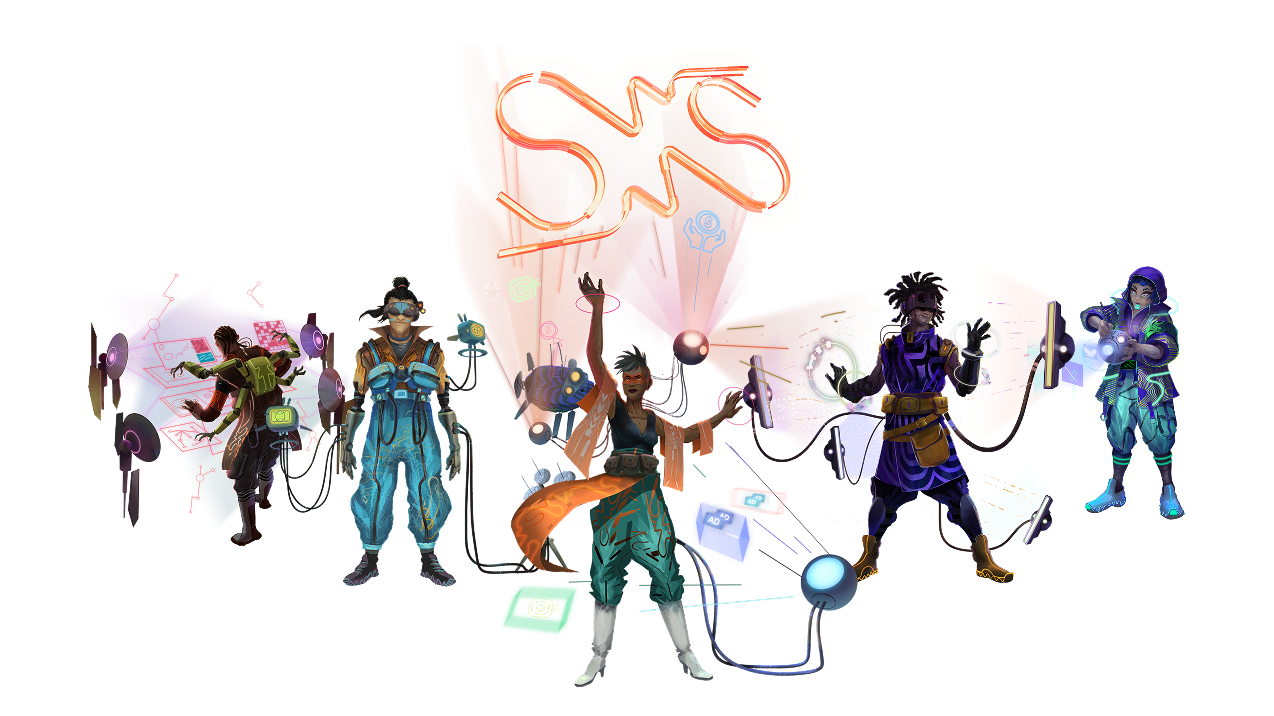
Whether it is ChatGPT or another conversational AI tool, artificial intelligence is going to transform SEO to make us more productive and help accelerate the time it takes to see improvements on a SEO strategy. We’ve outlined just some of the ways that you can use AI tools and assistants like ChatGPT to improve your current SEO processes and increase your output for yourself and your business.
5 Ways You can Use AI in Your B2B SEO Strategy
There are endless opportunities to improve productivity and performance with the support of an AI assistant. We've outlined 5 examples of how you can use AI to improve your B2B SEO Strategy.
1. Research topics quickly
Topic research can take a long time to do. It may require lots of online research. A conversational AI like ChatGPT can help speed up this process by answering your questions within one window and help you with your research, essentially acting like a research assistant.
This doesn’t mean you shouldn’t do your own in-depth research but it means you task the AI with finding out something in particular, especially if it may be time-consuming for you to or difficult. A good example would be tasking the AI with finding 50 stats on marketing with reference links and then picking the most relevant ones.
2. Summarise an article
Another use of an AI assistant would be to summarise an SEO article you have written. Sometimes it can be difficult to succinctly summarise all the main points especially if it was a very in-depth piece. An AI assistant like ChatGPT can do this in seconds, allowing you to review the summary and tweak as you require. This is a running theme of an AI assistant, it can do the initial heavy lifting and leave you to tweak and finalise the output at the end.
3. AI assisted keyword research
SEO Keyword research is one of the most important and time consuming aspects of search engine marketing and optimisation. It requires hours of research to find lots of related keywords.
An example query may be “can you list all related keywords to “project management software”. You can also use it to search for questions people ask on a certain topic. This can help you devise an SEO content strategy based on keywords.
4. Writing structured data markup with AI
One thing that is great about a computer programme is that it is better at writing and understanding code than humans. AI assistants are now getting to the stage where they can write and check code for you to deploy.
This can be very useful for an SEO specialist that perhaps doesn't have the best understanding of coding but wants to check or implement something on a website. Something simple like implementing structured data markup on a website is fairly straightforward but can be much easier and quicker to do with the support of an AI interface like ChatGPT.
For example you could ask “Can you write the structured data for this article…” and insert the link and the AI will then do the work for you without you having to fiddle around with.
5. Building SEO friendly websites with AI
AI website builders currently exist. Durable is one of those tools out therefore using AI to help build websites in “30 seconds”. Yes, the websites are very basic, but this is only going to improve.
Gone will be the days of paying a website designer thousands of pounds for a website, you’ll be able to create one yourself in minutes. This lowers the barriers to digital marketing and means that the real value of a digital marketing professional and strategist will be more around the content and the creative. This also means that computer programmes will build websites that are more “SEO friendly” than a human could. Again making technical SEO a thing of the past.
The Wider Impact of AI on SEO
Beyond how you can use AI assistants to improve SEO, we’ve laid out our thoughts on the wider implications of AI on search engines and how this may evolve in the future, for better or worse.
AI doesn’t replace search
AI uses data and machine learning to improve its answers. A lot of the data that is used to train algorithms is publicly available on the internet. As a huge source of data AI will be answering questions and referencing certain websites within their answers. This means AI doesn’t replace search but it augments it and improves on the user experience.
At the end of the day humans are always searching for answers to questions. Eventually these answers will no doubt be answered by computers that are integrated into our bodies themselves, taking the term ‘personal computer’ to a new level. Gone will be the physical device, but, in the meantime we will still be using physical machines to ask complex questions.
Yes voice search is still the next logical step but as a lot of people have experienced, this is not yet a good enough user experience to warrant a shift to pure voice search, we also still have to view the answer on a physical screen. An AI assistant can save us time by serving the ‘right’ answers succinctly and quickly without us having to scroll through pages in a search engine.
What is Answer Engine Optimisation?
Answer Engines are an evolution and a subcategory of Search Engines. Unlike a search engine an answer engine usually has a singular output where it summarises some of the most relevant information. A search engine on the other hand displays all the potential answers and tries to rank them in order of relevance.
How much do we trust an AI response?
It’s scary how quickly humans get used to trusting computers with some of the most important things in our lives. We often trust Google Search with some of our deepest, darkest questions. Just looking at search history and keyword data will tell you humans trust Google to serve them the answers to their most important medical questions and relationship advice. There is nothing to say this trend will not continue, we, as humans will inevitably end up trusting AI responses as much, if not more than search engines.
Optimising Websites for AI Assistants
The future of Search Marketing lies in optimising website content for AI assistants. This is very similar to optimise for search engines as it is essentially the same technology but in a different medium.
Unlike Search Engine, AI assistants will serve answers in a different way to Search Engine results Page. But, really in the end useful content will always be of benefit to the user and will eventually rise to the top.
The use of AI in search engines will help users get a faster, more relevant response and this means quality content will have a better chance of being found rather than content that has solely been produced in order to rank well.
So is SEO dead? Well no, SEO in its purest form is being found online by producing answers to your users and buyers questions. The best answers will be served to the user, so, focus on answering user questions as best you can and you will always have a place online to be found.
Higher CTR for top results and structured data
With the introduction of AI into search engines we are likely to see an even higher CTR for the top results and also those results with structured data.
AI assistants are likely to reference certain websites when answering questions and the number is likely to be around 3, which means the number of websites being exposed to the searcher is likely to decrease from the 10 on the first page of search results to only those being reference in the AI answer, if any,
A larger rich/poor divide
One thing AI is likely to do is increase the divide between the rich and poor unfortunately. This is no different for businesses. Larger, more established businesses with more content and exposure or more likely to be referenced by AI assistants. And because of the decline in usage of search engine result pages the drop-off from being one of the top websites ina search will be even harsher.
Introducing Search as a Service
The next evolution of search engines is likely to monetize the engine itself. Unlike Google, which is free (with ads), search engines are likely to move to a more subscription based model, meaning that you will pay a monthly fee for the service.
This means things like PPC ads could potentially become extinct, which is good and bad, especially bad for Google as Ads account for a huge chunk of their revenue.A subscription based search service will likely inspire more competition which could be a good thing. Neeva AI is a good example of this already.

Find a B2B SaaS Expert
We've collected a directory of B2B SaaS experts and agencies that we've reviewed and categorised based on service and specialism for your review.









